In June, we published a post called What Do You Think About Clinical Trials? The post included the results of several surveys about perceptions of clinical trials including the results of a study conducted by MaPS/Millward Brown Analytic and Memorial Sloan Kettering (MSKCC).
Medivizor’s Clinical Trials Perception Survey Results
In our post we embedded our own short survey for our readers to complete. The questions were modeled after those described in the MSKCC press release. Sixty-seven of you answered it. Although the results are not statistically significant, they are, none the less, interesting and informative.
Our readers differed from the Memorial Sloan Kettering (MSKCC) survey. Only 40% of their respondents had a positive overall impression of clinical trials. The majority of our readers, 60 participants, were positive about clinical trials. Only 1 person had a negative opinion about clinical trials.
For the MSKCC survey only 35 percent indicated that they were “likely” to enroll in a clinical trial. In our group, 63 (94%) agreed or strongly agreed that they would be interested in participating in a clinical trial. Forty participants strongly agreed and 23 agreed.
For this question, “I am concerned about clinical trials because…”
- “I worry about side effects.”
- “I worry about safety.”
- “I’m unsure about out of pocket costs and whether insurance pays for it.
- “I’m afraid of getting a placebo.”
- “I want my regular doctor to be in control.”
- “Clinical trials require you to travel to distant places.”
- “I don’t want unproven treatment.”
- “I don’t want to feel like a guinea pig.”
- Other
Like the respondents to the MSKCC survey, our surveyed readers were concerned about side effects and safety. Fifty-five percent of MSKCC respondents had these worries. Likewise 31.3% of our readers marked that “I worry about side effects” and 28.4 % indicated worry over safety. Those answering MSKCC’s survey had greater concerns about insurance and out-of-pocket costs (50 percent) compared to 14.9% of Medivizor’s readers. Travel was not as great an issue for our readers: 14.9% marked it as a concern, while 48% of those answering MSKCC’s survey worried about this obstacle.
Our audience was more afraid of getting a placebo (34%) than of any of the other barrier in the list, though our numbers were lower than MSKCC respondents (46%). According to the National Cancer Institute, in cancer clinical trials, the “placebo” is actually the standard treatment for the cancer plus a placebo. Placebos are only used if there is no standard treatment available. If a study has a placebo, the researchers are required to tell you before you join the clinical trial.
Those who answered other responded to the open ended opportunity. They stated:
- “I can’t really answer until it [a treatment is] offered to me.”
- “will treatment help at all?”
- “I am on a 10-year callback list to volunteer in various studies.”
- “With diabetes progressing, need to be sure of my tx [treatment].”
- “Long term effects, not sure if it will work.”
- “The only reason I would not participate in a clinical trial is if it were too far to travel.”
- “not close to home.”
In 2006, a summary of many previous surveys on clinical trials was compiled. It found that the opinion and influence of the patient’s physician was the most instrumental factor in whether or not a patient would enroll in a clinical trial. Most of our respondents did not know if their physician offered or recommended clinical trials (39 respondents). Five people indicated that their physician did not recommend clinical trials. However Medivizor readers were very interested in being informed about clinical trials by their physicians, 63 of 67 respondents said yes.
Our readers are more informed than the physicians surveyed by the MSKCC survey. MSKCC survey found that 56% of the 600 physicians they polled thought of clinical trials as part of late stage treatment while our readers overwhelmingly disagreed with this statement.
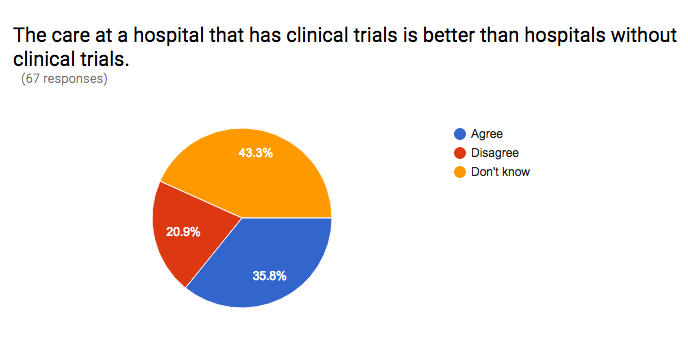 Most of our readers did not know if there was a difference in the care given by hospitals that had clinical trials. Those polled by MSKCC saw no difference between the care given by hospitals with clinical trials and those without.
Most of our readers did not know if there was a difference in the care given by hospitals that had clinical trials. Those polled by MSKCC saw no difference between the care given by hospitals with clinical trials and those without.
Conclusions
Thank you to all of our readers but especially to those who were willing to take the time to complete our survey. For people with chronic conditions, clinical trials are an option that may be underutilized due to lack of information, continuing myths and adequate support for those involved. To learn more about clinical trials, please go to the post What Do You Think About Clinical Trials? There you will find an explanation of the phases of clinical trials and may learn more about other treatment options. If you have any questions, please comment below.

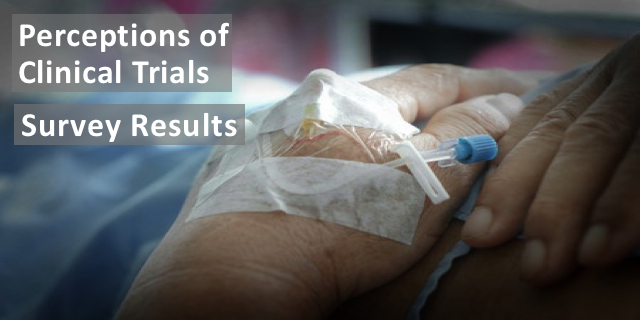


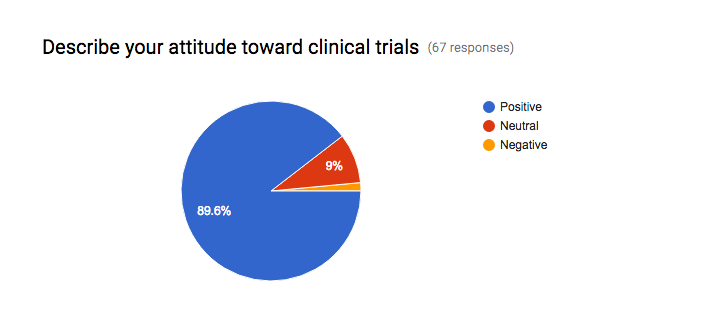
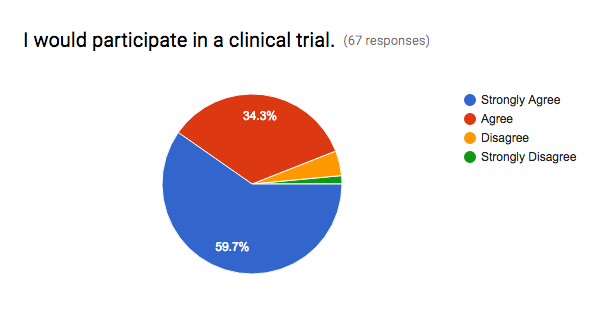
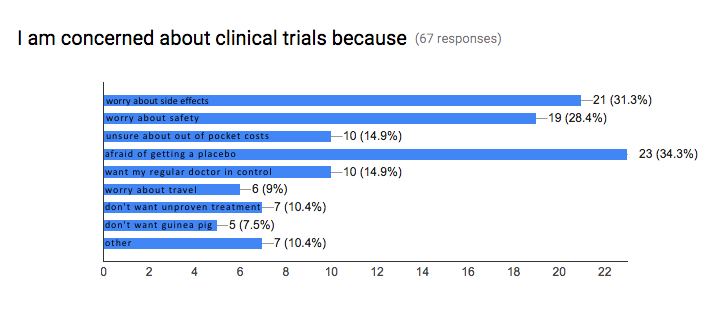
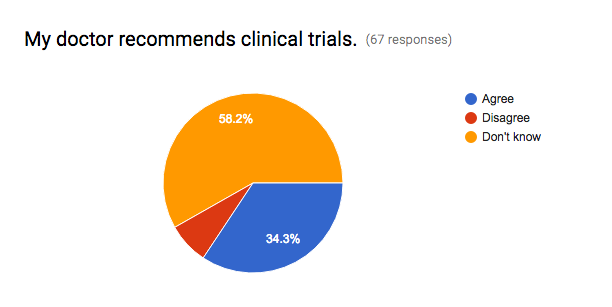
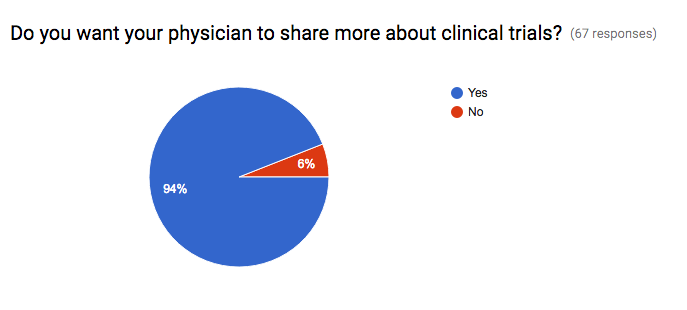
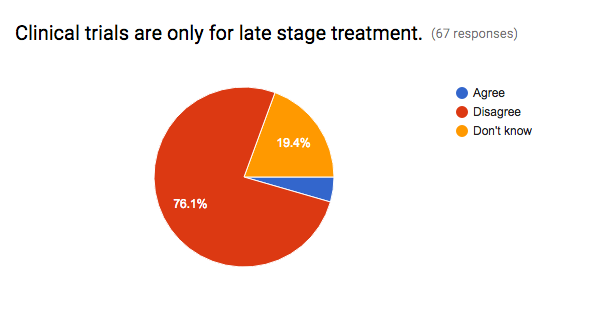


Your different response to the concern about insurance coverage might be due to respondents from countries with public health care.
Very few people are aware of the extra surveillance, lab tests, pathologist review and global review they typically receive at no cost to them, other than time, even if they have been randomized into standard of care.
Thank you so much for your insight! Kathleen